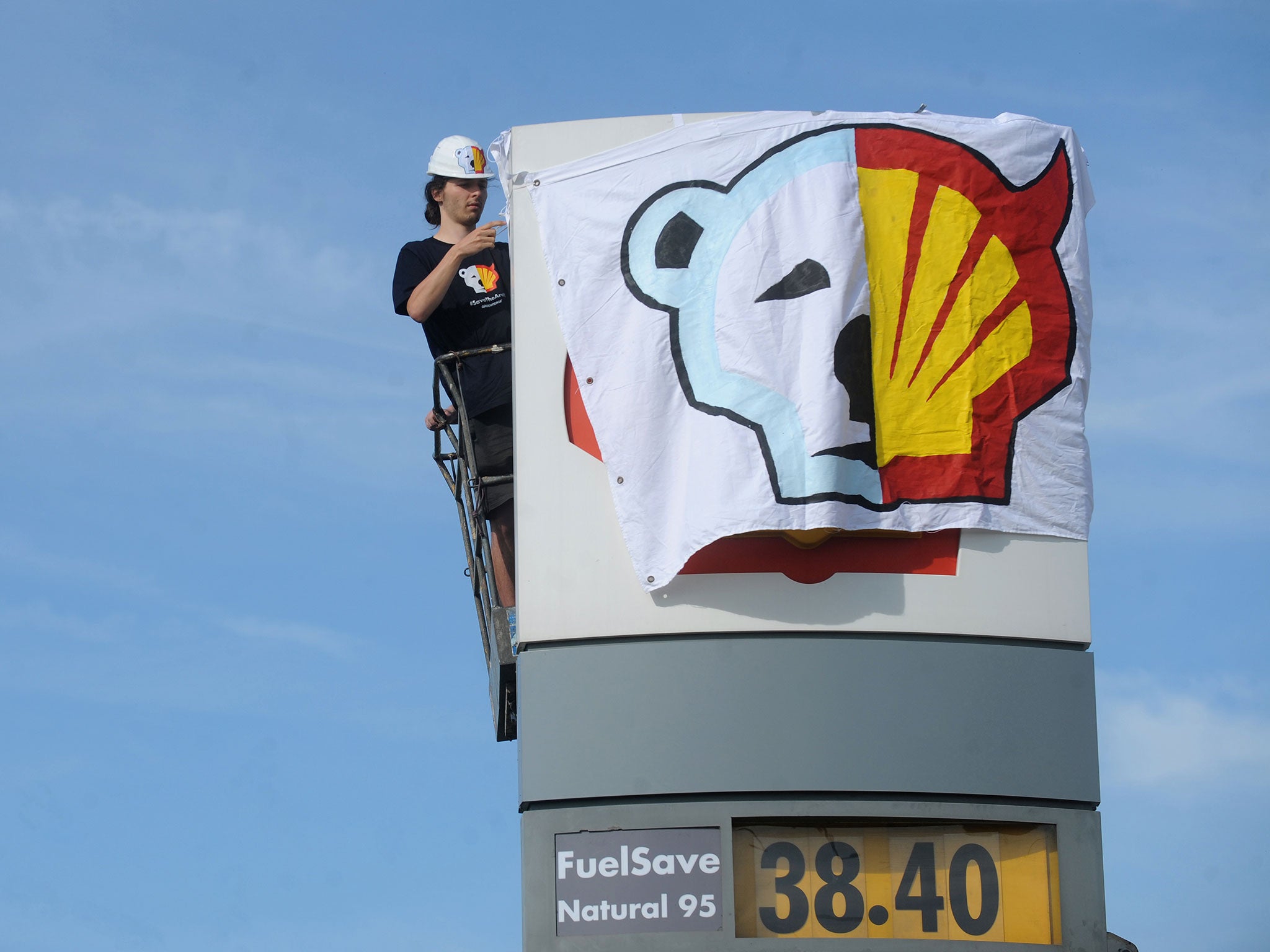Shell pulls out of drilling in Alaska 'for the foreseeable future' after not finding enough oil
The project has involved billions of pounds' investment

Your support helps us to tell the story
From reproductive rights to climate change to Big Tech, The Independent is on the ground when the story is developing. Whether it's investigating the financials of Elon Musk's pro-Trump PAC or producing our latest documentary, 'The A Word', which shines a light on the American women fighting for reproductive rights, we know how important it is to parse out the facts from the messaging.
At such a critical moment in US history, we need reporters on the ground. Your donation allows us to keep sending journalists to speak to both sides of the story.
The Independent is trusted by Americans across the entire political spectrum. And unlike many other quality news outlets, we choose not to lock Americans out of our reporting and analysis with paywalls. We believe quality journalism should be available to everyone, paid for by those who can afford it.
Your support makes all the difference.Shell has announced that it is pulling out of all drilling in Arctic waters off the coast of Alaska after a major exploration project failed to find enough oil.
Environmentalists have hailed the news as a "momentous" result, as the oil giant said it was suspending Alaska drilling "for the foreseeable future".
Shell insisted that its decision was principally motivated by an apparent lack of oil in the area, but opponents of Arctic drilling insisted that the growing campaign against Shell’s Alaskan campaign had played a significant role and that, without it, the company would have persevered for longer before giving up.
Last month, presidential candidate Hilary Clinton Clinton said she would block drilling off the coast of Alaska, injecting a huge degree of uncertainty into Shell’s plans for the region. Meanwhile high profile religious figures such as the Pope and the Arch Bishop of Canterbury and celebrities including Kate Moss, Emma Thompson and George Clooney are also campaigning against Arctic exploration.
“This is a momentous day for the environment – the Arctic is one of the last pristine parts of the world and this raises hopes that we can put our arms around the region and protect it,” said Friends of the Earth chief executive Craig Bennett.
“It is also great news for the climate, reinforcing the message that we must leave fossil fuels in the ground. And it’s really important for the broader environmental movement to see that ‘people power’ is working,” he added.
Shell conceded that “the changing and unpredictable federal regulatory environment in offshore Alaska” played a part in its decision, along with the high cost of operating there because of the perilous conditions – at a time when oil is languishing at half last year’s price, due to a glut in supply.
The company, however, would not be drawn on Ms Clinton’s comments and played down the influence of environmental campaigners, saying their role, while important, was “nothing new”.
In a statement, Shell said it had found some oil and gas in a well in the Chukchi Sea about 80 miles off Alaska's northwest coast, as part of Arctic offshore development projects which have cost more than $7 billion.
Marvin Odum, president of Shell USA, said the company hoped the area would "ultimately be of strategic importance to Alaska and the US".
"However, this is a clearly disappointing exploration outcome for this part of the basin," he said.
Despite saying otherwise, Shell is thought to have become increasingly concerned about the criticism it is receiving for its involvement in the Arctic – a high-costly, high-risk venture that would take at least a decade to pay off and may well have resulted in billions more pounds of losses and still ended in failure.
“It is possible that Shell might almost be relieved as they can stop exploration for a legitimate operational reason, rather than being seen to bow to environmental pressure,” said Stuart Elliott, of the energy information group Platts.
The company said it expected to take a significant financial blow from the failed project, but that it was better to pull out now given "the high costs associated with the project, and the challenging and unpredictable federal regulatory environment in offshore Alaska".
"Polar bears, Alaska’s Arctic and our climate just caught a huge break," said Miyoko Sakashita, oceans programme director for the US Center for Biological Diversity, in a statement. "Drilling for oil there is inherently dangerous and will only drive the world deeper into the climate crisis. If we’re going to leave behind a livable planet, we need to leave that oil in the ground today, tomorrow and always."
Niel Lawrence, the Alaska director for the Natural Resources Defense Council, said Shell’s announcement is “a watershed moment for the climate, the company’s investors, the fragile region and its iconic wildlife, and American consumers.
“For the climate, Shell won’t be locking in fossil fuel production we don’t need and can’t afford if we want to limit global warming,” Lawrence told the Fuelfix blog. “Shell’s shareholders won’t be on the hook for billions more investment that any rational climate agreement would leave stranded.”
Join our commenting forum
Join thought-provoking conversations, follow other Independent readers and see their replies
Comments